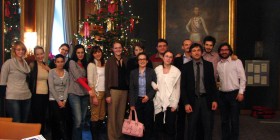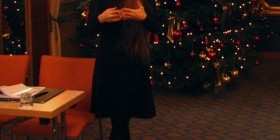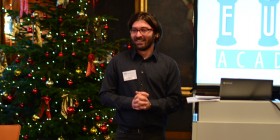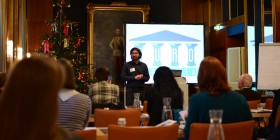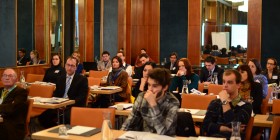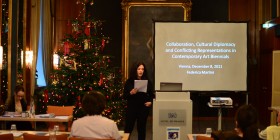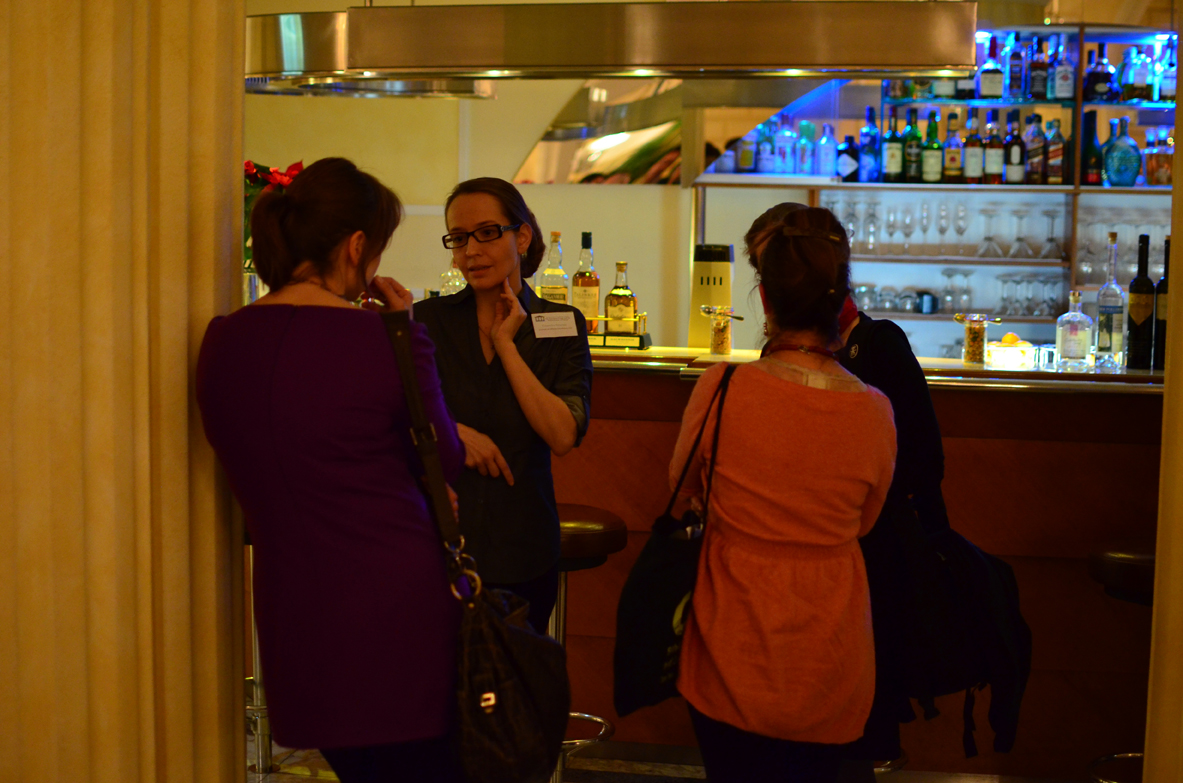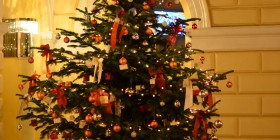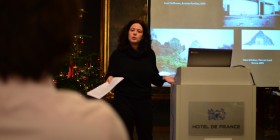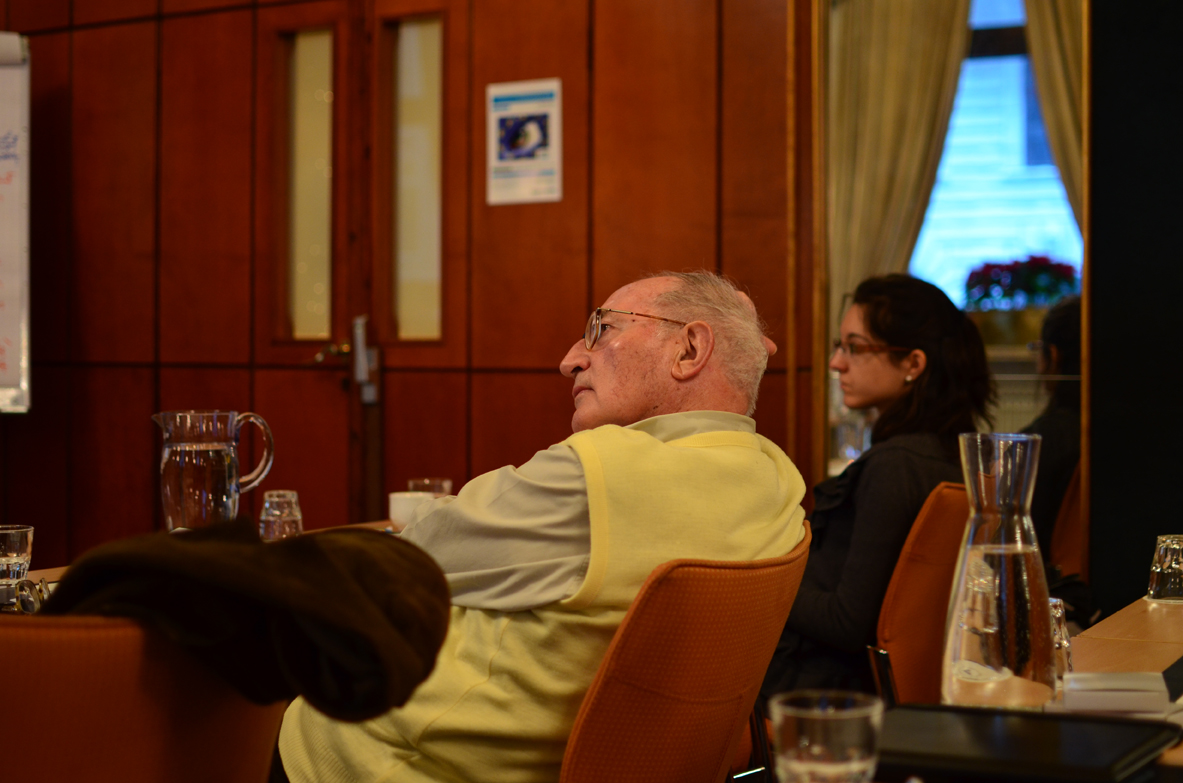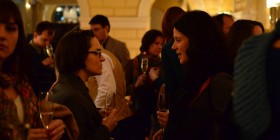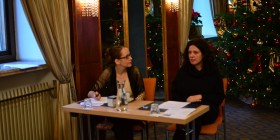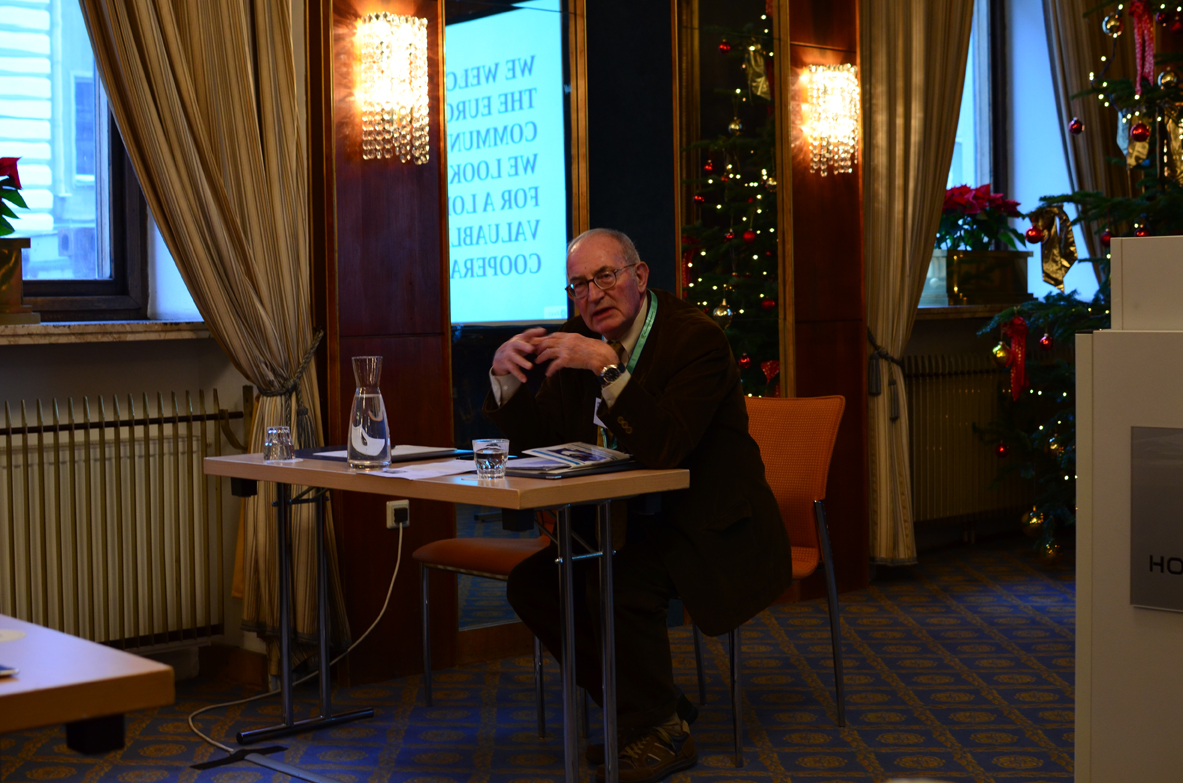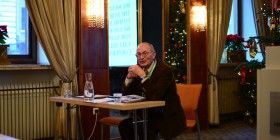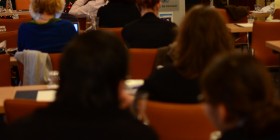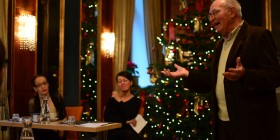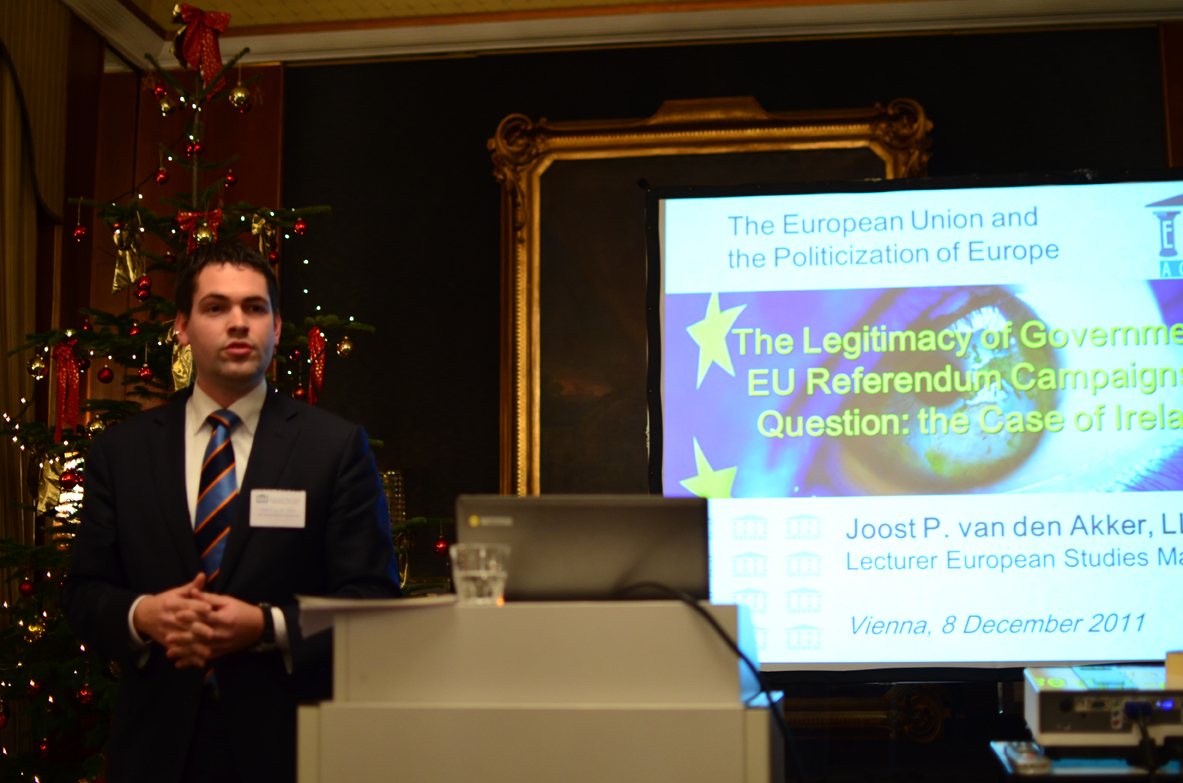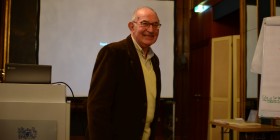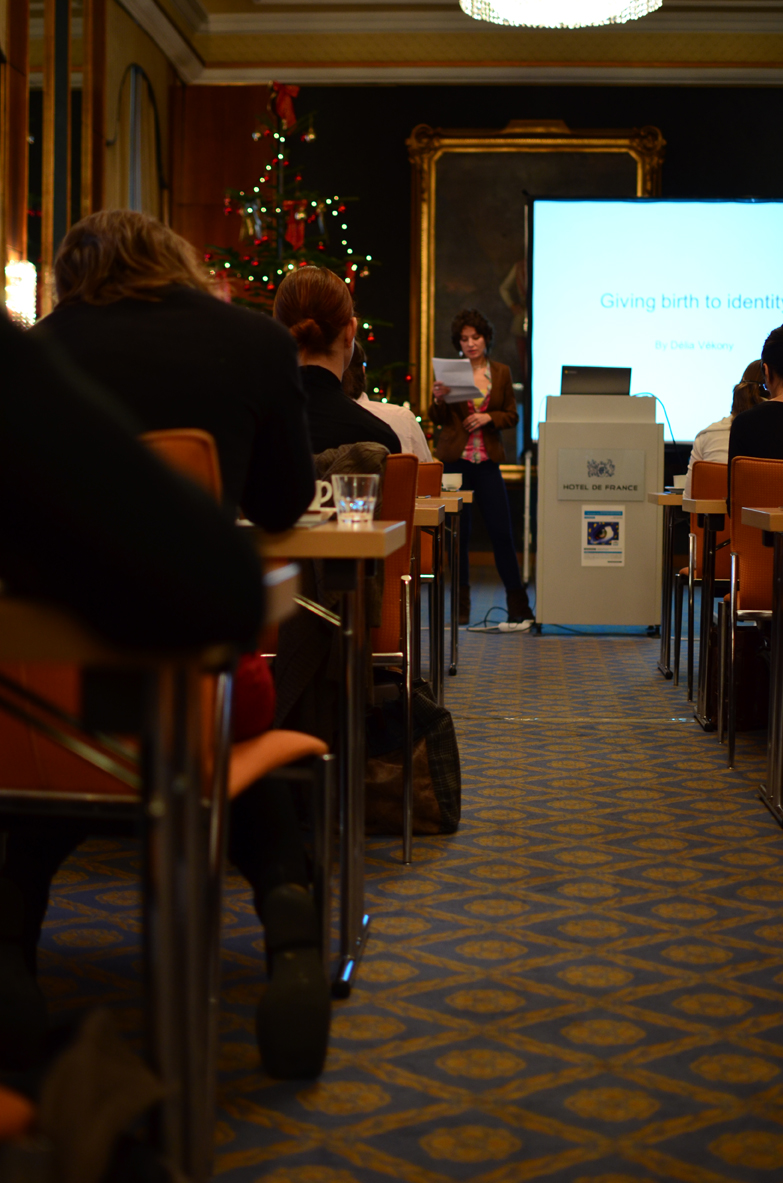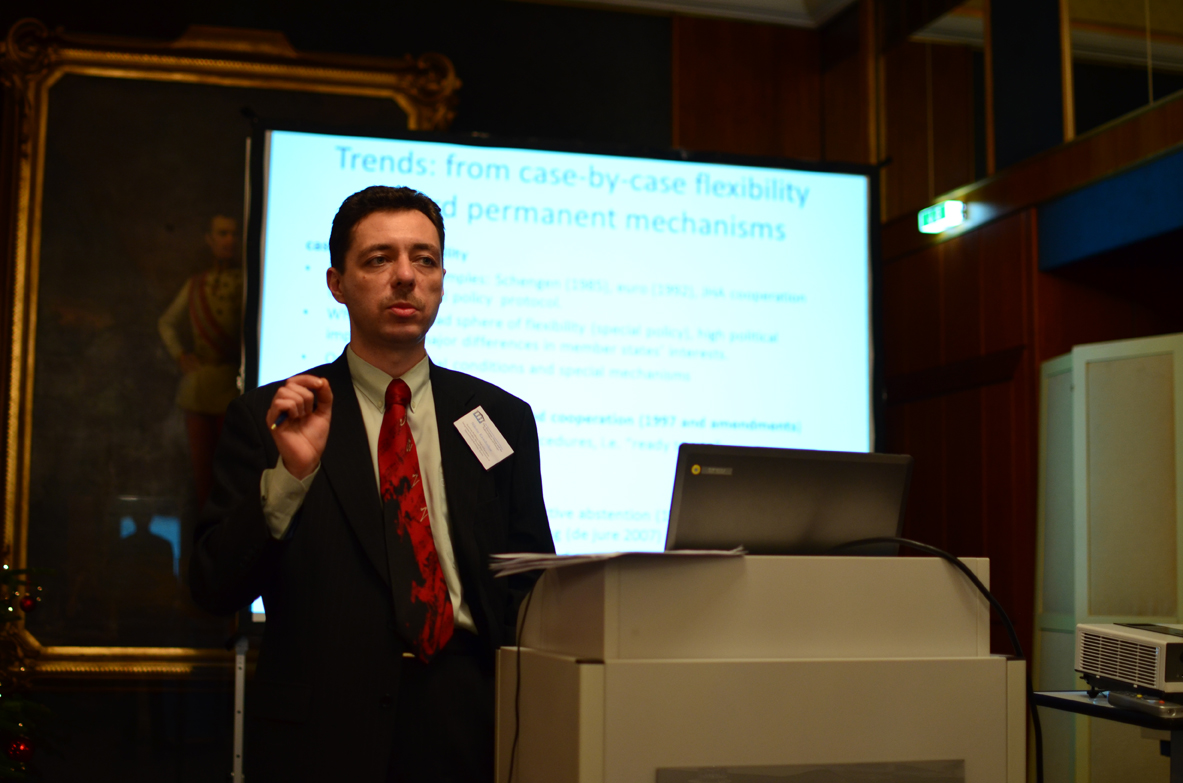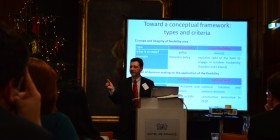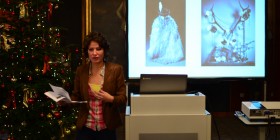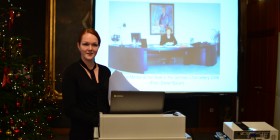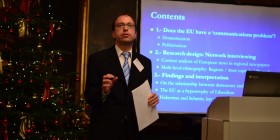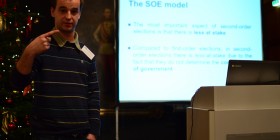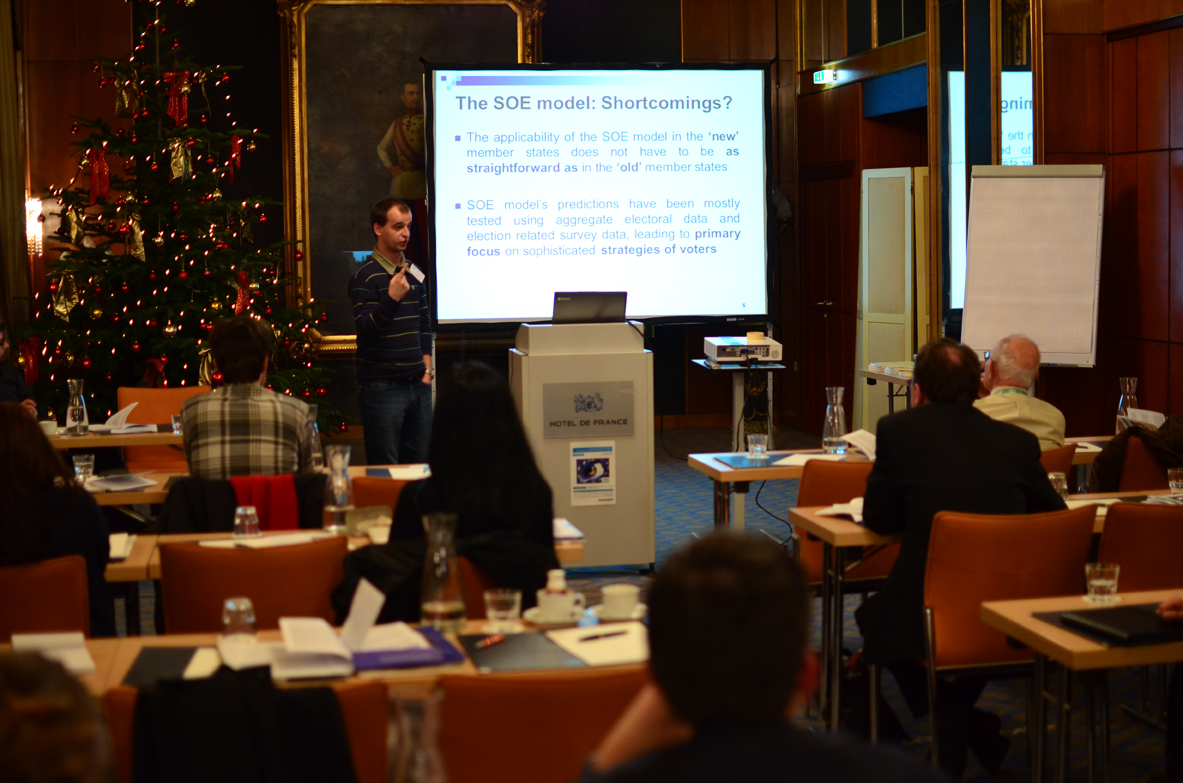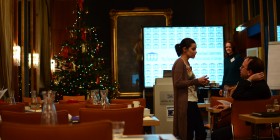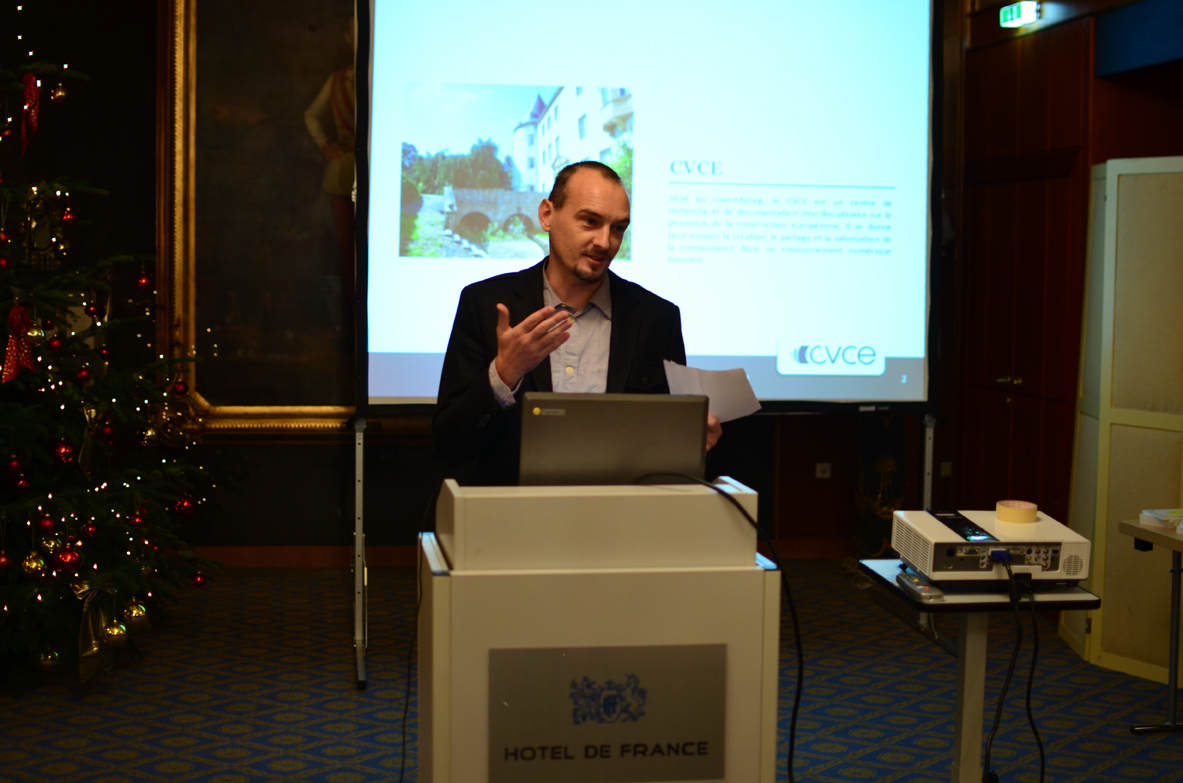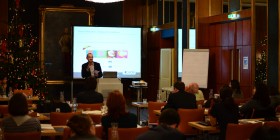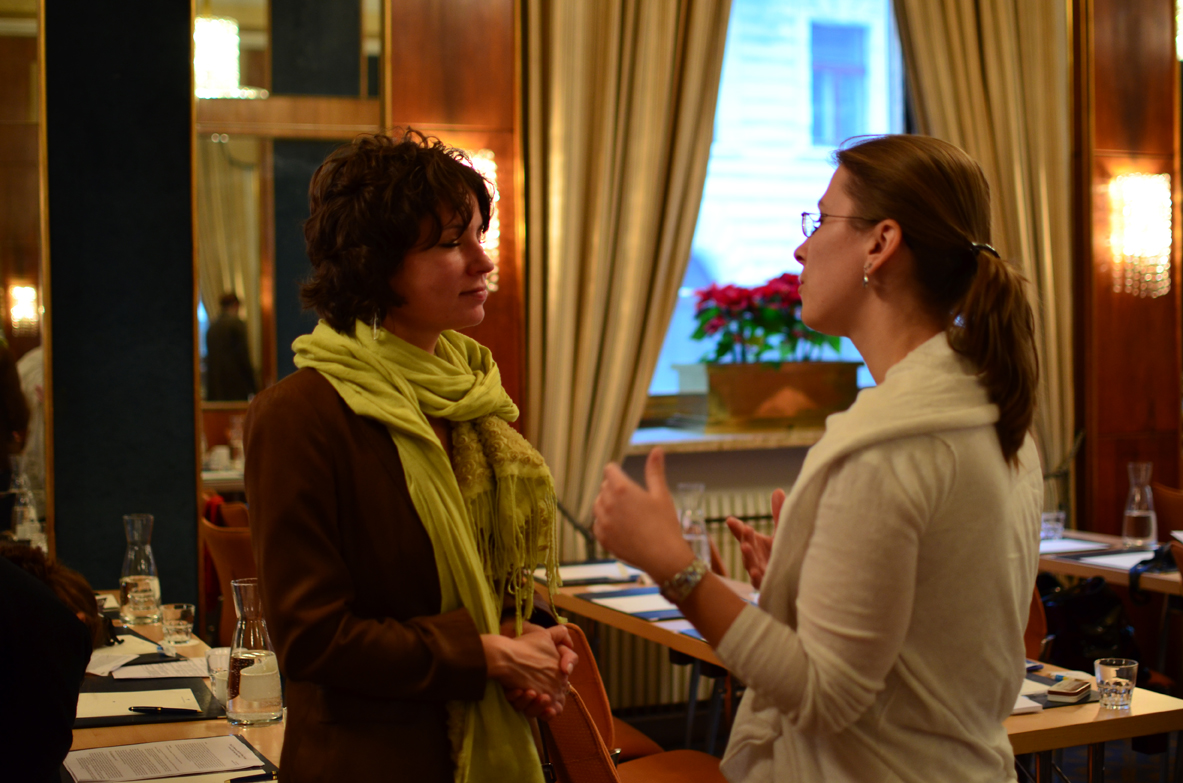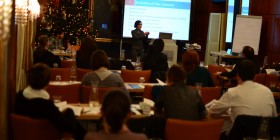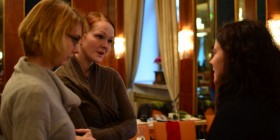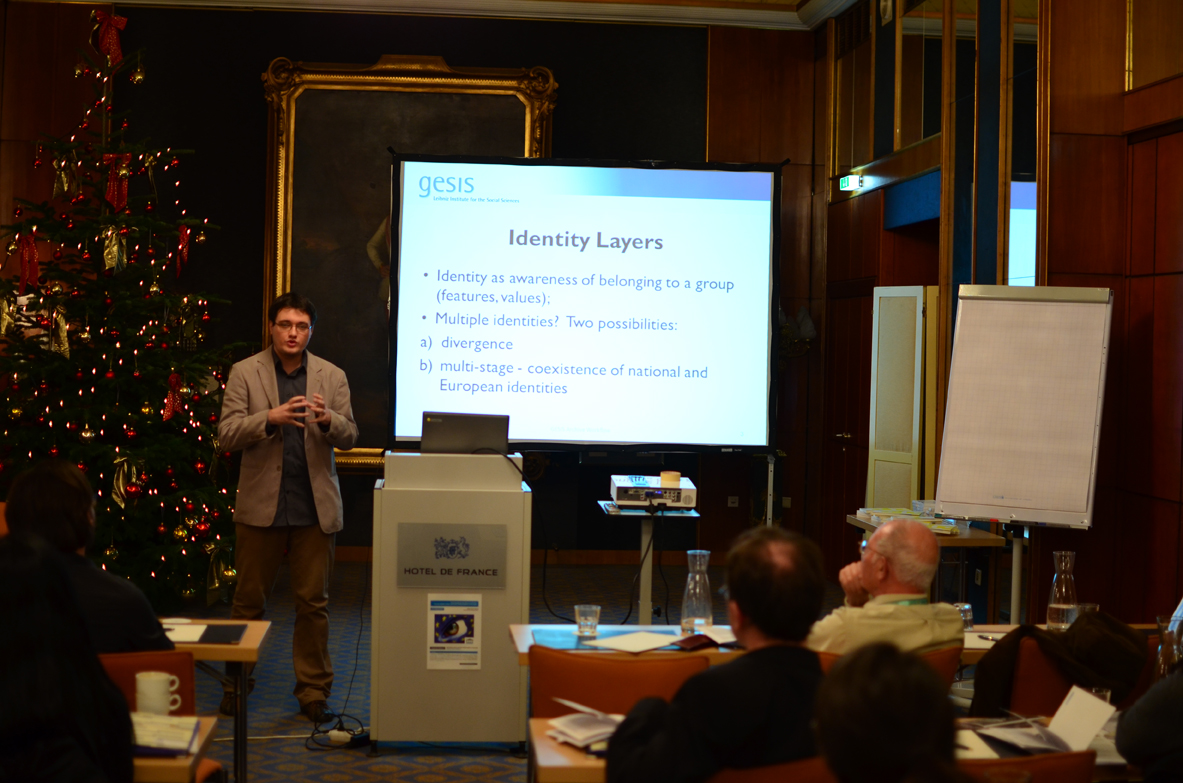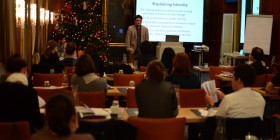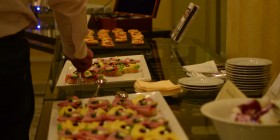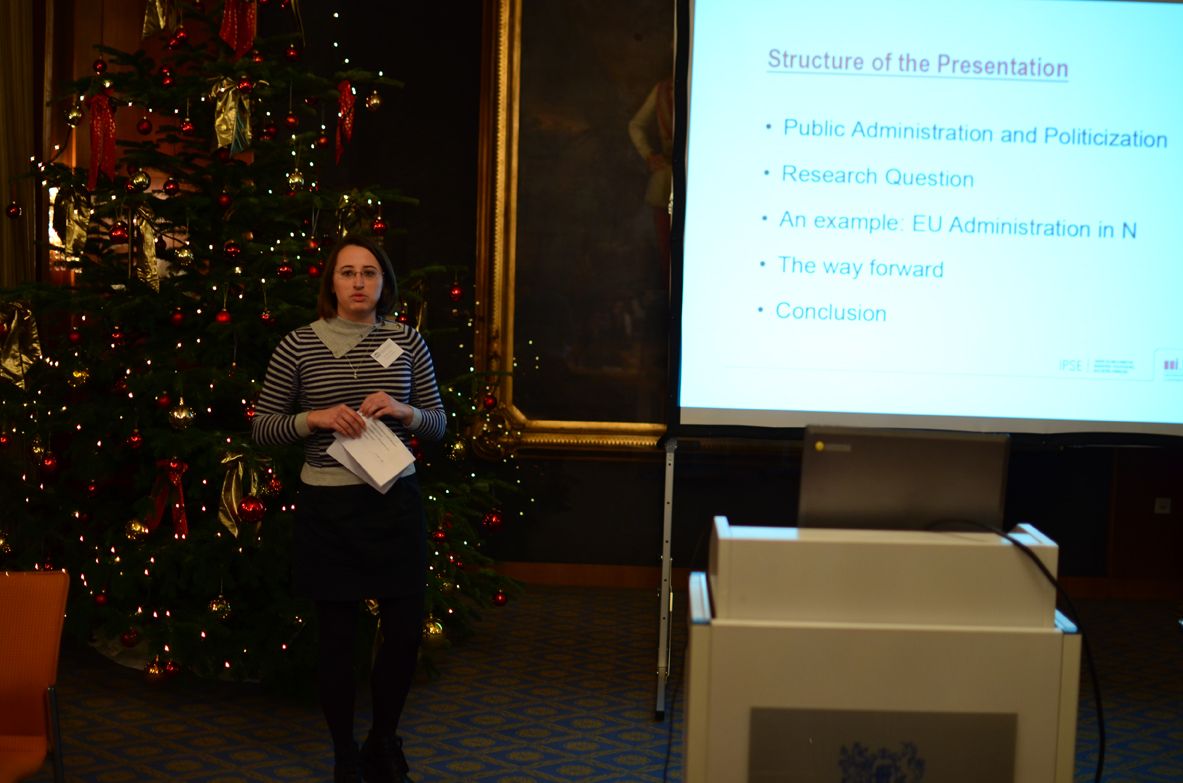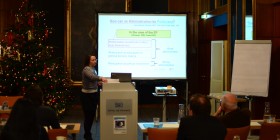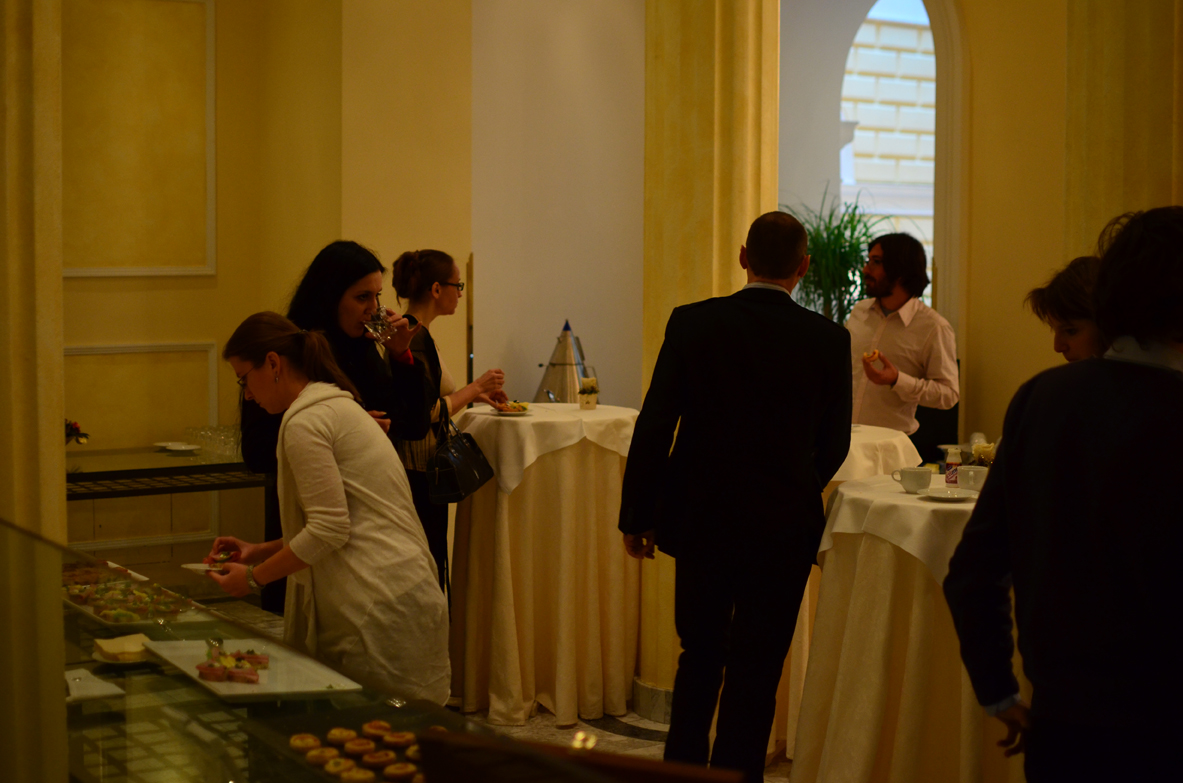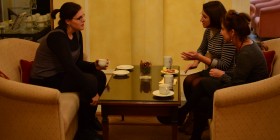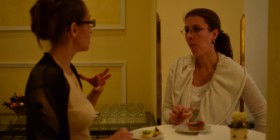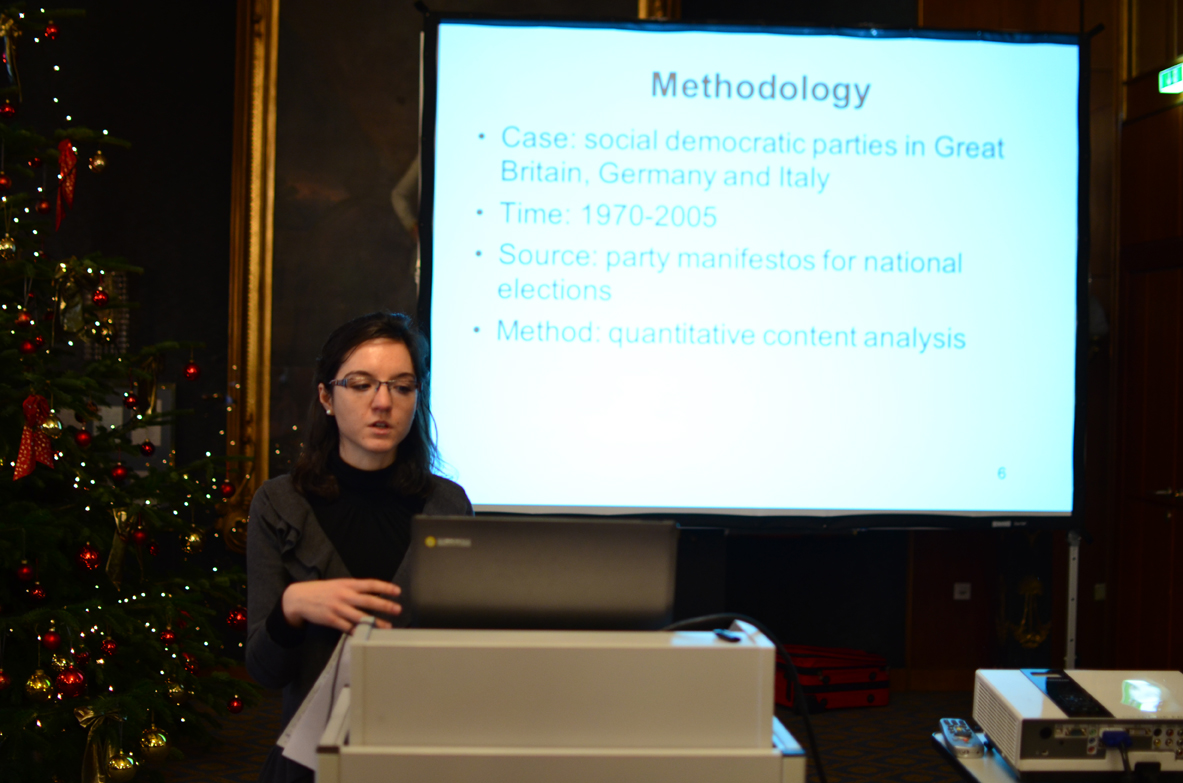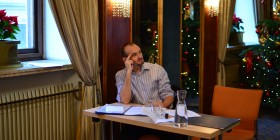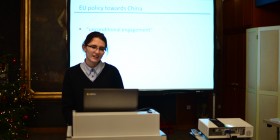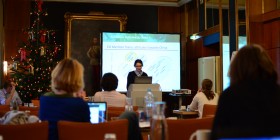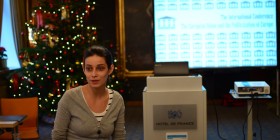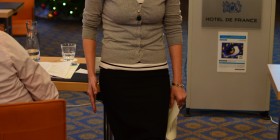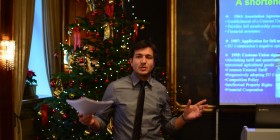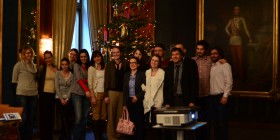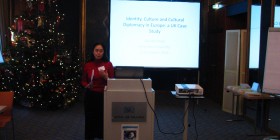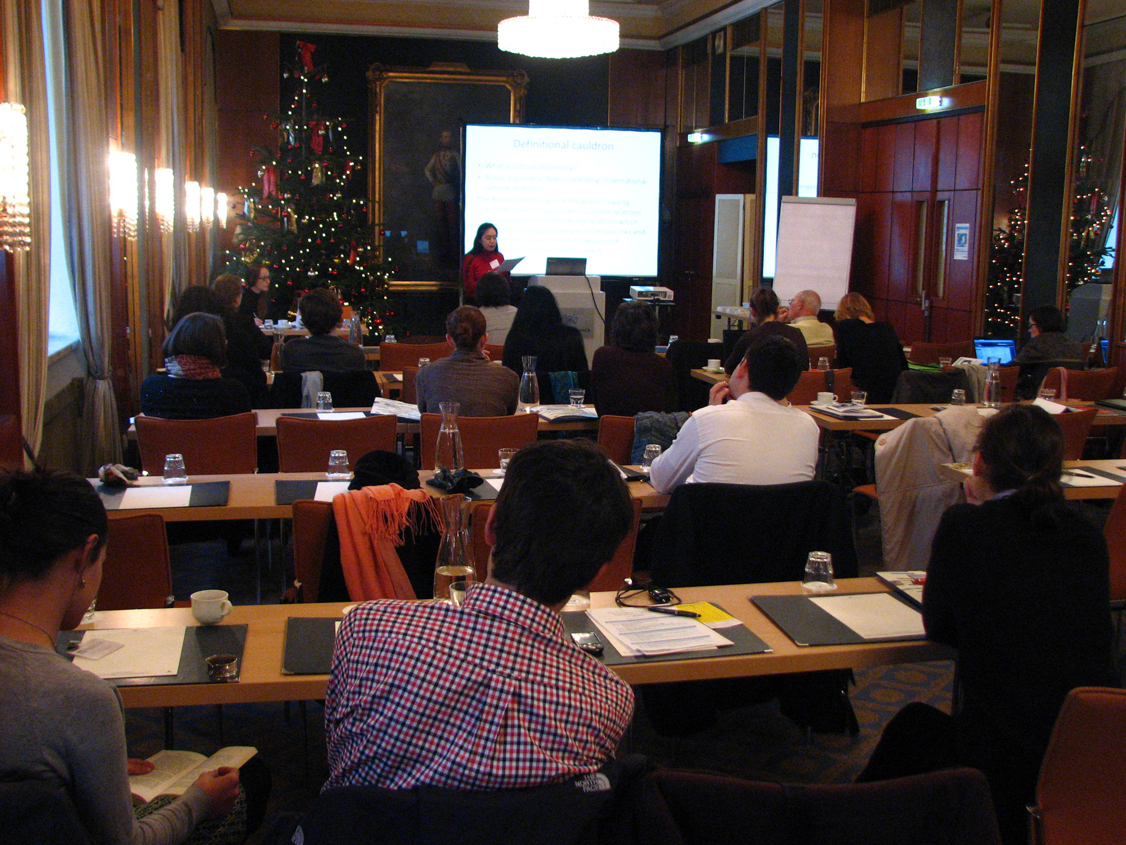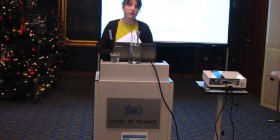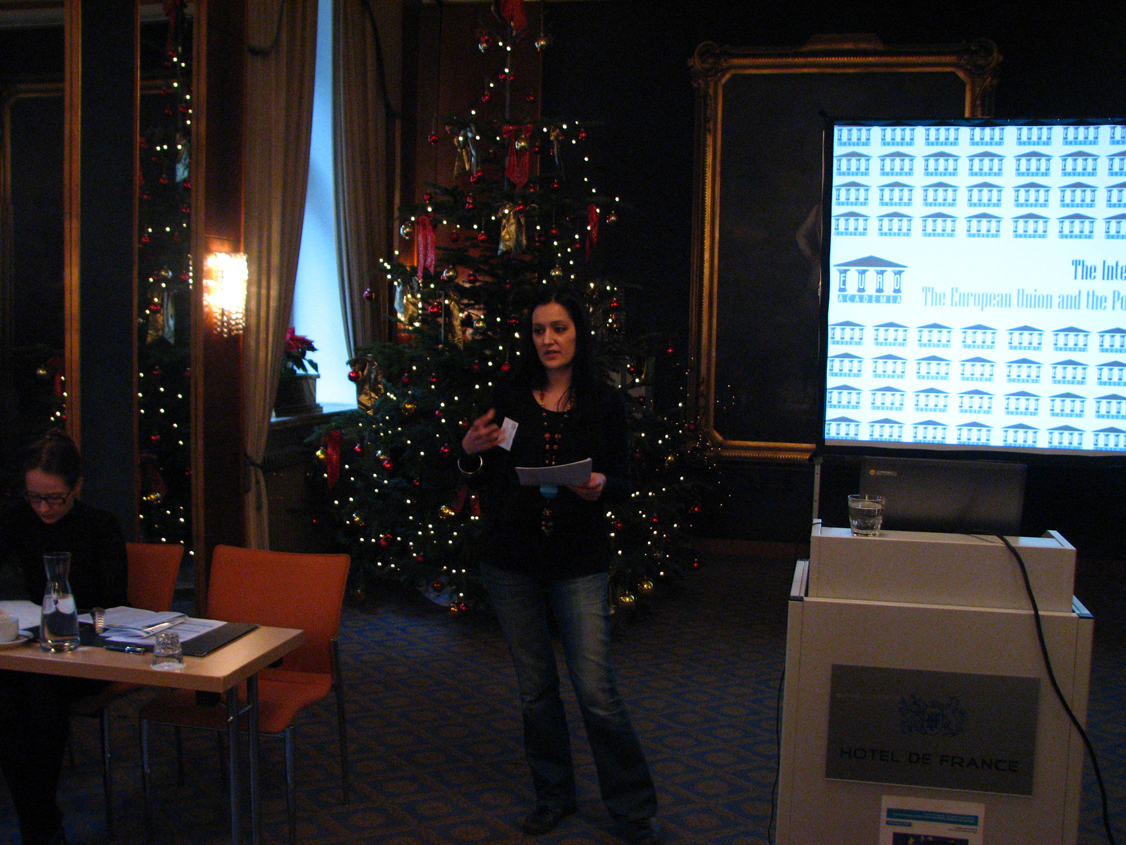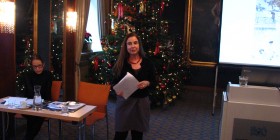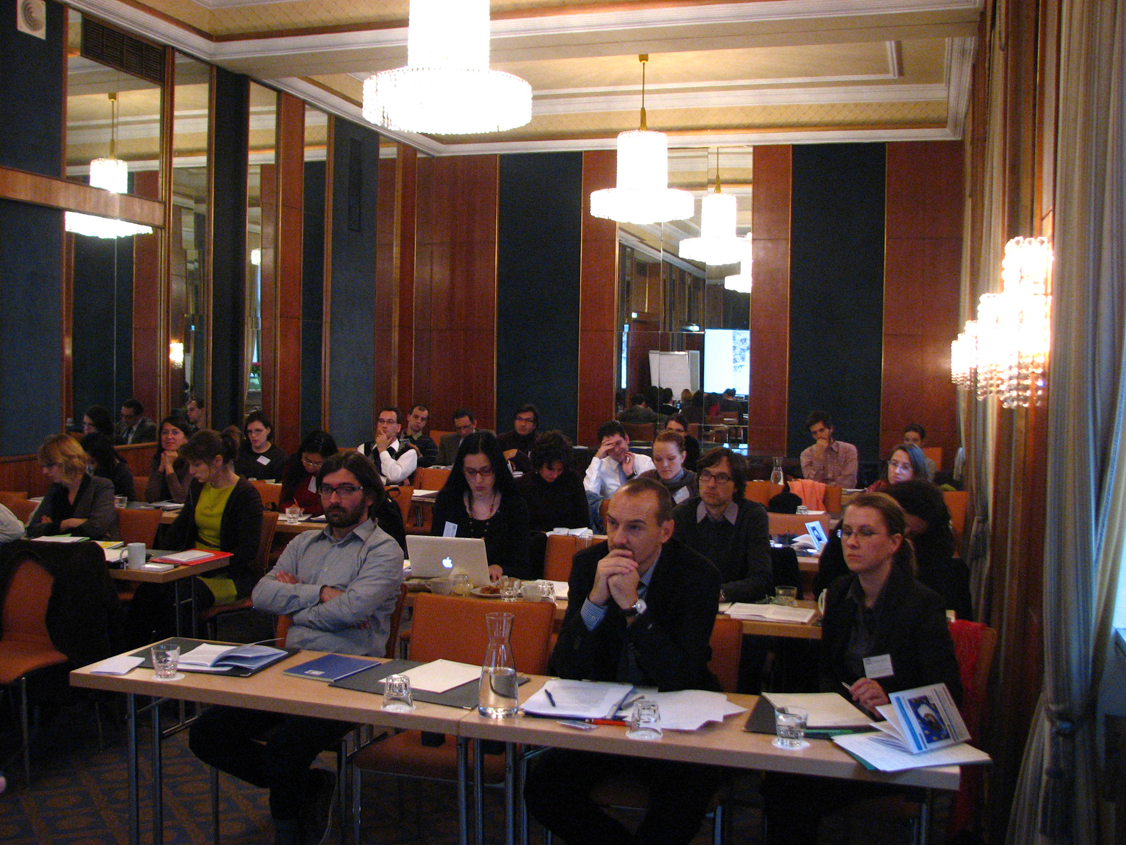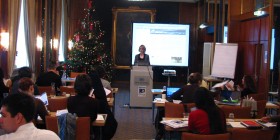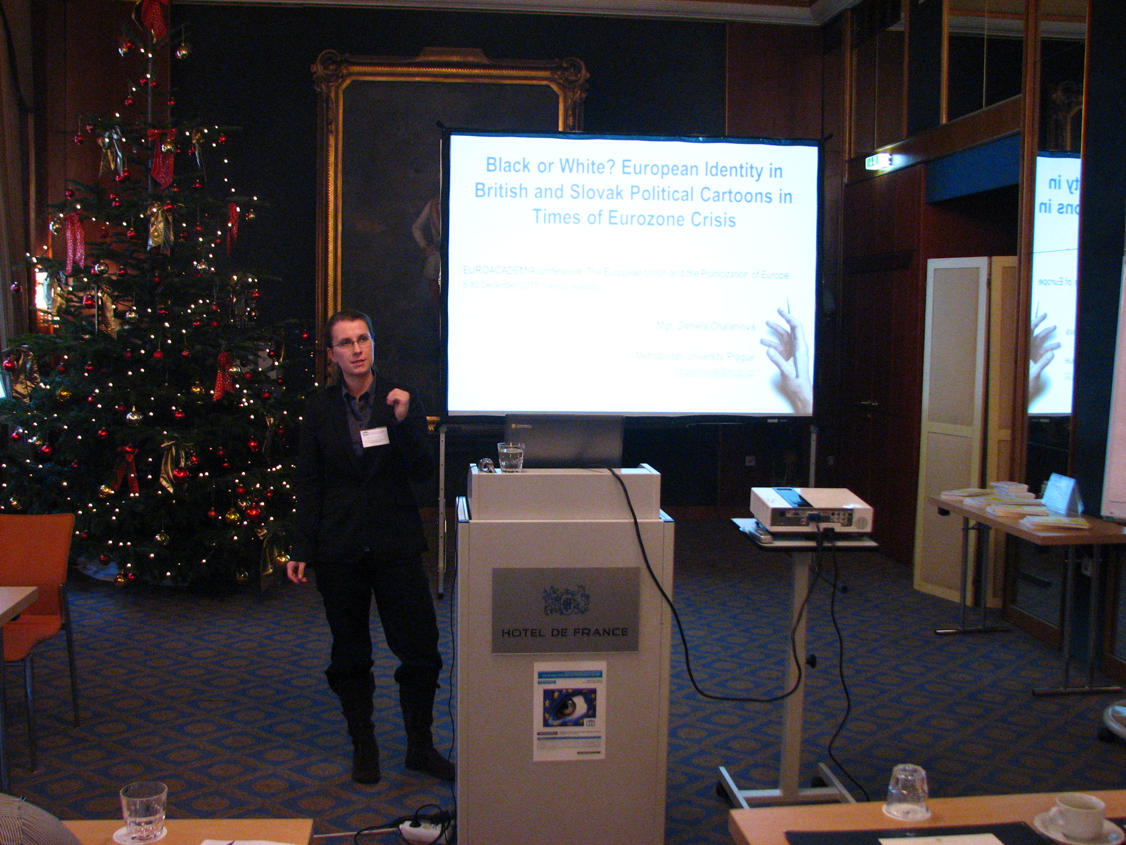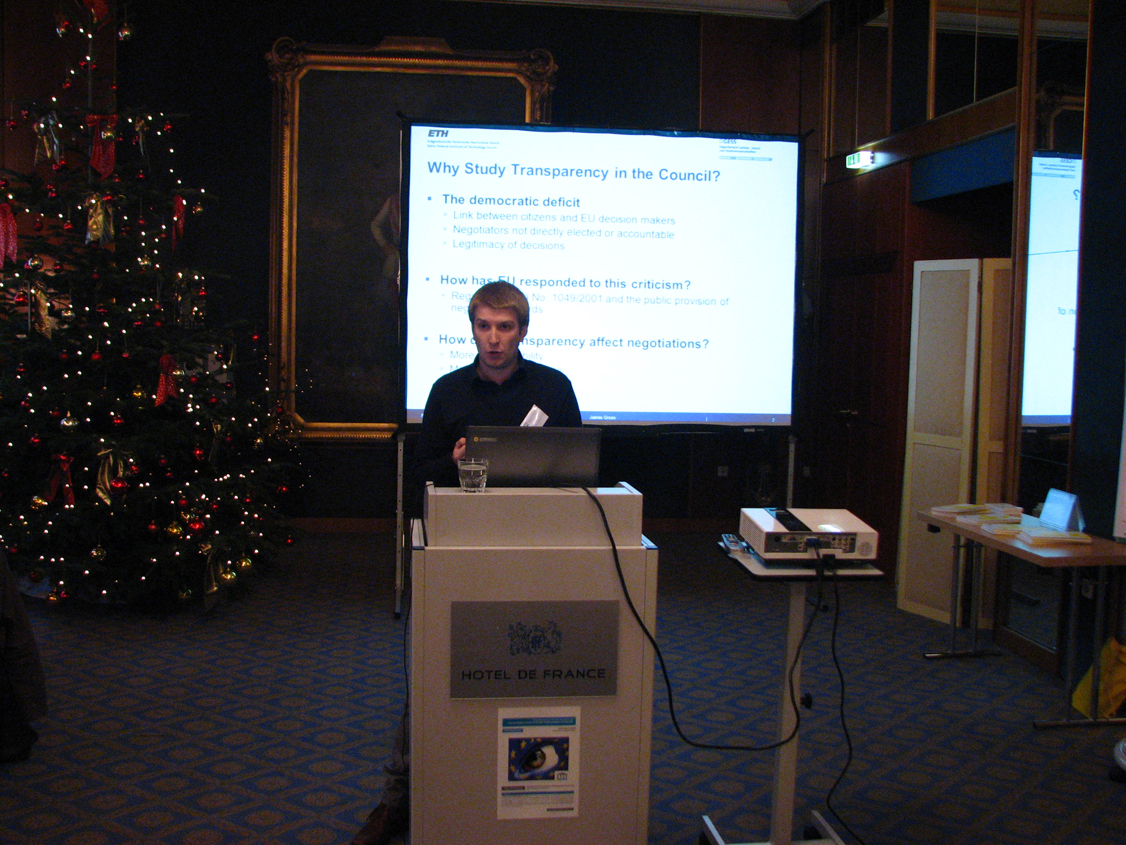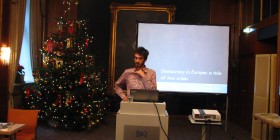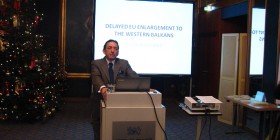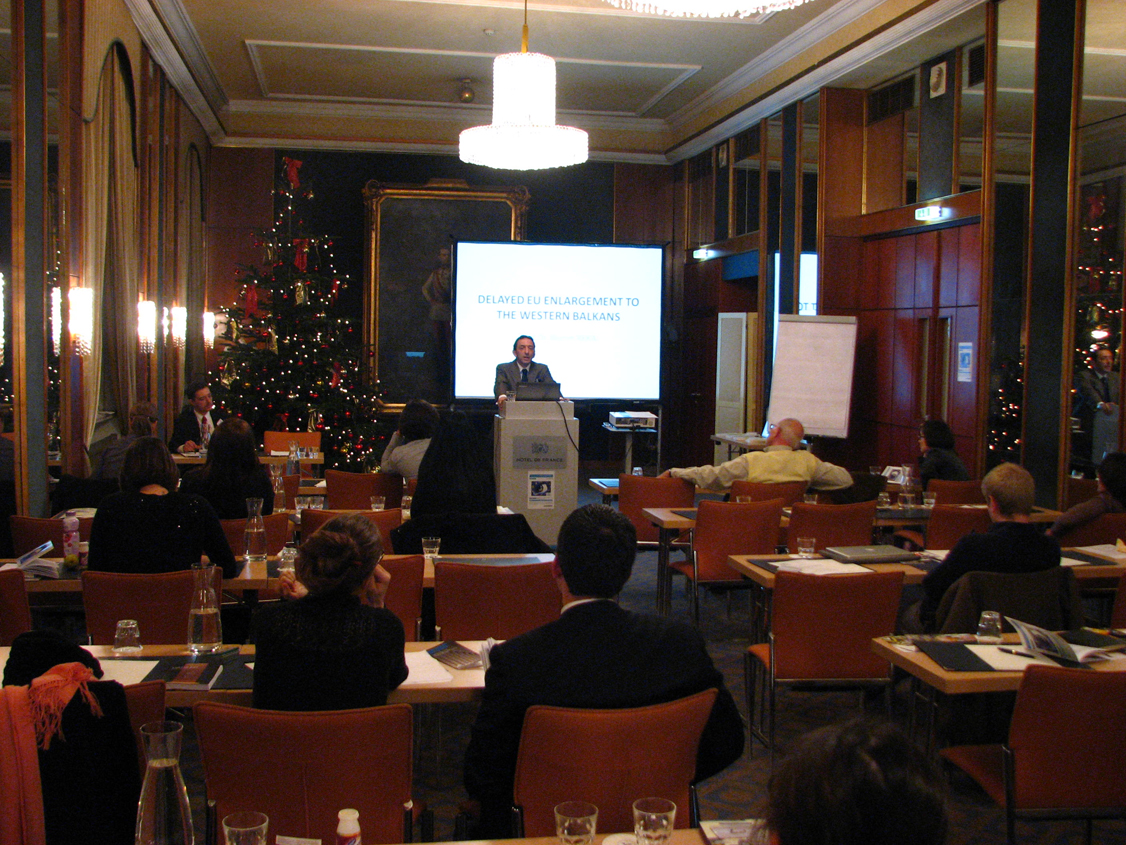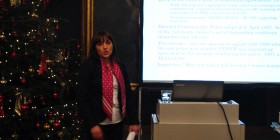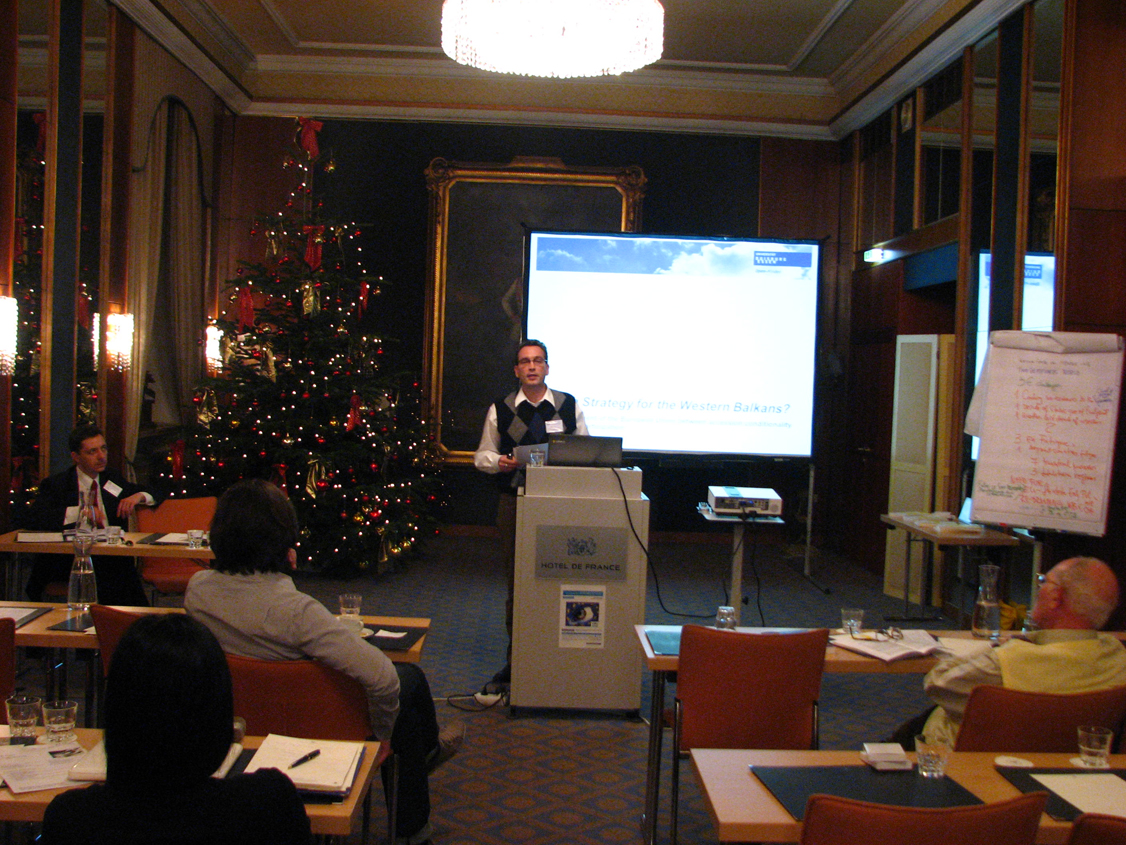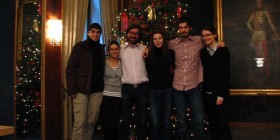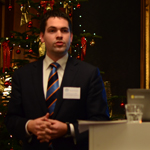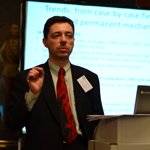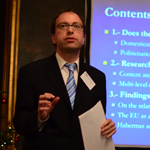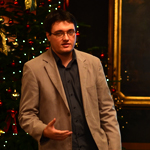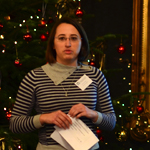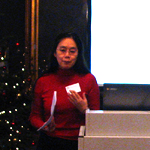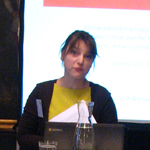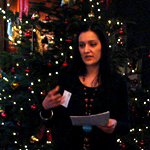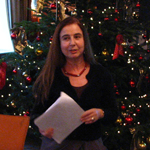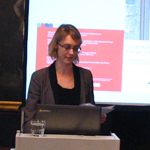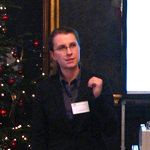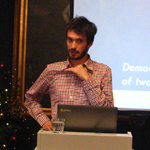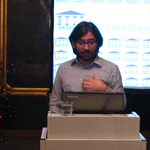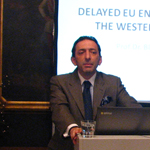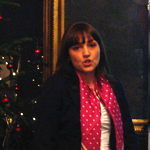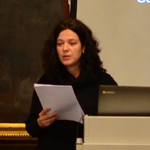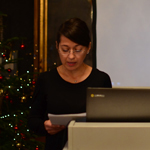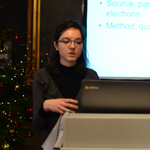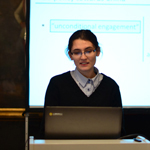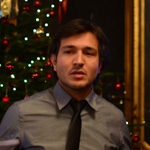Hotel De France – Salon Franz Joseph
1010 Vienna, Schottenring 3Conference testimonials
← Previous Next →
Martina TopicResearch fellow at the Faculty of Political Science and PhD Candidate in Sociology at the Faculty of Humanities and Social Sciences, University of Zagreb, Croatia
Euroacademia's conference on the EU has been an enlightening experience. While, unfortunately, many conferences serve for the 'conference tourism' this conference proved to be a true place for academic debate. People who organized the conference belong to the group of young PhD candidates and researchers and their enthusiasm, that I as a young scholar share with them, got transferred to a whole group of the conference participants and fostered true academic debate on the issues we are all confronted with. From management up to the conference program and managing of the debates, this conference is the best experience I've had so far and I've participated in numerous conferences in the past four years. I will most certainly attend Euroacademia's conferences in the future and I will always gladly recommend it to colleagues and friends of true academia.

Delia VekonyDepartment of Arts Management of the International Business School, Budapest, Hungary
It was truly a great experience both personally and professionally. I also enjoyed that it was not a massive event as I could actually meet and make contact with people. So overall it was great, I had three ecstatic days with all the participants. It was also lovely to see how many bright and up-to-date colleagues I have both in the arts and politics side of studies. I think Cassandra Sciortino was also a very insightful chair for our ‘Art as Cultural Diplomacy’ sessions and I hope that the art and culture side of Euroacademia will live on and grow into an important aspect of the art and culture world of today. I also hope that Euroacademia is enthusiastic to cooperate with IBS Vienna - opening soon - as I think we could participate in and come up with interesting projects together.
Upcoming Conferences
Conference program
- December 8, 2011
- 13:00 - 13:30Registration (Reception Desk, Hotel de France, Foyer)
- 13:30 - 14:00Welcome and Opening Remarks
- 14:00 - 15:30Keynote Speech - Giandomenico Majone -Monetary Union and the Politicization of Europe
- 15:30 - 16:00Coffee Break
- 16:00 - 17:30Panel 1– Features of Politicization in the EU (Chair Emanuel Crudu)
- 17:30 - 19:00Panel 2– Layers of Politicization in the EU: From Elections, Administration to Civil Society (Chair Davide Bradanini)
- 19:00 - 19:30Welcome Reception (Hotel de France - Atrium )
- 19:30 - 22:30Dinner – Restaurant Hotel De France
- December 9, 2011
- 09:00 - 10:30Panel 3 – Art as Cultural Diplomacy: Negotiating National Identity and EU unity (Chair Cassandra Sciortino)
- 10:30 - 11:00Coffee Break
- 11:00 - 12:30Panel 4 – Art as Cultural Diplomacy: Power and the Agency of Images (Chair Cassandra Sciortino)
- 12:30 - 14:00Lunch – Restaurant Hotel De France
- 14:00 - 15:30Panel 5 – The Democratic Deficit Issue in the EU (Chair Joost P. van den Akker)
- 15:30 - 16:00Coffee Break
- 16:00 - 17:30Panel 6 – The Future of EU Enlargement (Chair Nikolay Kaveshnikov)
- 17:30 - 18:00Discussions
- December 10, 2011
- 09:00 - 10:30Panel 7 - Art as Cultural Diplomacy: Contemporary Art and the Challenge of Representing Europe Through Multiple Identities (Chair Cassandra Sciortino)
- 10:30 - 11:00Coffee Break
- 11:00 - 12:30Panel 8 – The EU as a Political System (Chair Xavier Carpentier Tanguy)
- 12:30 - 13:00Closing Session
- December 8, 2011
The European Union and the Politicization of Europe
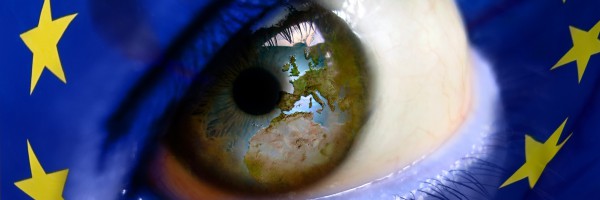
- Conference Description
- New Panel: Art as Cultural Diplomacy
- Participant’s Profile
- Registration and Fee
- Social Activities and Publication
- Important Dates
- Venue and Directions
- Panel 1
- Panel 2
- Panel 3
- Panel 4
- Panel 5
- Panel 6
- Panel 7
- Panel 8
The European Union and the Politicization of Europe
8-10 December 2011, Vienna, Austria
Keynote Speaker: Giandomenico Majone
The European Union was described by Jacques Delors as an unidentified political object and by Jose Manuel Barroso as the first non-Imperial empire. The descriptors assigned to the European Union are creative and diverse yet the agreement on what is the actual shape that the EU is taking is by no means an easy one to be achieved. Historical choices shaped and reshaped the size and functioning of the EU while the goal of an emerging ‘ever closer union’ is still in search for the paths of real and not ideal accomplishment. The agreement seems to come when it’s about the growing impact of the decisions taken in Brussels on the daily lives of the European citizens and the increasingly redistributive outcomes of the policy choices inside the EU. These dynamics created the framework for the politicization of Europe and opened a vivid debate about the direction and proportions of such a process.
The politicization of Europe takes various shapes and addresses significant puzzles. While it is clear that the EU doesn’t resemble a state it is less clear if the decisions that shape its policies are configured by Pareto efficient outcomes or by dynamics that are intrinsic to a political system and defined by emerging party politics within the European Parliament. The democratic problem or the democratic deficit issue was and continues to be one of the main challenges facing the European Union in any terms or from any position is understood or described. The problem of accountability for the decision making inside the EU was there from the beginning and it emerged gradually as more emphatic on the agenda of vivid debates as the powers of the EU have grown after the Maastricht Treaty. This was concomitant with a growing disenchantment of citizens from member states with politics in general, with debates over the democratic deficits inside member states, with enlargement and with a visible and worrying decrease in voters’ turnouts at both national and especially European elections. The optimist supporters of EU believe in its power to constantly reinvent and reshape while the pessimists see either a persistence of existing problems or a darker scenario that could lead in front of current problems even to the end of the EU as we know it.
The Euroacademia International Conference ‘The European Union and the Politicization of Europe’ aims to survey some of these current debates and addresses once more the challenges of the EU polity in a context of multiple crises that confronted Europe in recent years. It supports a transformative view that involves balanced weights of optimism and pessimism in a belief that the unfold of current events and the way EU deals with delicate problems will put an increased pressure in the future on matters of accountability and will require some institutional adjustments that address democratic requirements for decision making. However in its present shape and context the EU does not look able to deliver soon appropriate answers to democratic demands. In a neo-functionalist slang we can say as an irony that the actual crisis in the EU legitimacy is a ‘spillover’ effect of institutional choices made some time before. To address the EU’s democratic deficit however is not to be a skeptic and ignore the benefits that came with it but to acknowledge the increasing popular dissatisfaction with ‘occult’ office politics and with the way EU tackles daily problems of public concern while the public is more and more affected by decisions taken at the European level.
Is the EU becoming an increasingly politicized entity? Is the on-going politicization of Europe a structured or a messy one? Do political parties within the European Parliament act in a manner that strengthens the view of the EU as an articulate political system? Are there efficient ways for addressing the democratic deficit issue? Can we find usable indicators for detecting an emerging European demos and a European civil society? Does a Europeanization of the masses take place or the EU remains a genuinely elitist project? Did the Lisbon Treaty introduced significant changes regarding the challenges facing the EU? Can we see any robust improvements in the accountability of the EU decision making processes? Are there alternative ways of looking at the politicization processes and redistributive policies inside the EU? These are only few of the large number of questions that unfold when researchers or practitioners look at the EU. It is the aim of the Euroacademia International Conference ‘The European Union and the Politicization of Europe’ to address in a constructive manner such questions and to offer o platform for dissemination of research results or puzzles that can contribute to a better understanding of the on-going process of politicization within the European Union.
Art as cultural diplomacy : the EU, the politicization of Europe, and the use of art to promote social cohesion, understanding, and strengthen intercultural relations
(Panel Organizer: Cassandra Sciortino, PhD Candidate, University of California, Santa Barbara)
Panel Description:
The panel “Art as cultural diplomacy” seeks papers that explore art (in its broadest definition) as an instrument of cultural diplomacy. 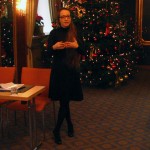 In the context of multiple crises confronting Europe in recent years, how have the arts contributed to the politicization of Europe? The Institute for Cultural Diplomacy (ICD) was founded in Berlin in 1999. The dynamic, non-profit organization casts the arts in an optimistic light, “as instrumental in shaping the tone and nature of intercultural relations.” But its potential “to raise awareness of different cultures, promote social cohesion, and strengthen intercultural relations, is the subject of little research and analysis, and is consistently undervalued.” To bridge this gap ICD created the program Art as Cultural Diplomacy (ACD).
In the context of multiple crises confronting Europe in recent years, how have the arts contributed to the politicization of Europe? The Institute for Cultural Diplomacy (ICD) was founded in Berlin in 1999. The dynamic, non-profit organization casts the arts in an optimistic light, “as instrumental in shaping the tone and nature of intercultural relations.” But its potential “to raise awareness of different cultures, promote social cohesion, and strengthen intercultural relations, is the subject of little research and analysis, and is consistently undervalued.” To bridge this gap ICD created the program Art as Cultural Diplomacy (ACD).
The panel intends to assess the viability of programs such as ACD and other similar efforts and the EU’s goal of unification. It seeks to combine a wide interdisciplinary spectrum of perspectives and questions in order to discuss the different ways art can be used to establish, develop, and sustain productive relations between EU countries, potential EU candidate countries, and other stakeholders in international relations.
Some examples of topics include:
• How can art serve as a neutral platform for exchange to promote dialogue and understanding between foreign states?
• How has/can it be employed as a vehicle for facilitating EU cohesion that is at once inter-culturally flexible and cohesive enough to project a unifying identity?
• How has/can public policy and other stakeholders craft a framework to measure the degrees of difference between art as instrument of cultural diplomacy or propaganda?
• Is it relevant to consider the concept of E-Diplomacy—that is the digital revolution and the emergence of social media as platforms for art to communicate across social, cultural, and national boundaries?
• How can growing international perspectives/methodologies in the field of art history be mobilized toward cultural diplomacy?
• Analysis of the debates surrounding the role of art as a tool in the field of public or cultural diplomacy. Is art only viable when it is free of dominant powers, such as government control? If so, how can free, independent art be identified and in what ways can it have a diplomatic impact?
• Consideration of European “culture” and “identity” and how these terms are used and understood currently.
• Assessment of the role that culture plays in current international relations and the process of globalization.
• Challenges of the complex relationship between culture, international relations, and globalization in the coming decades.
Please submit abstracts of less than 300 words by September 25, 2011 to [email protected]
The conference is addressed to academics, researchers and professionals with a particular interest in Europe and European Union from all parts of the world. As the nature of the conference is intended to be multidisciplinary in nature different academic backgrounds are welcomed.
Post-graduate students, doctoral candidates and young researchers are welcomed to submit an abstract. Representatives of INGOs, NGOs, Think Tanks and activists willing to present their work with impact on or influenced by specific understandings of the European Union are welcomed as well to submit the abstract of their contribution.
Abstracts will be reviewed and the participants are selected based on the proven quality of the abstract. The submitted paper for the conference proceedings is expected to be in accordance with the lines provided in the submitted abstract.
Participation fee: 295 Euro
The participation fee includes:
- the registration fee,
- all the materials for the conference
- a copy of the electronic volume
- access to Euroacademia discussion group and newsletters
- discounted rates for participation in the future Euroacademia conferences
- coffee brakes with snacks for all the duration of the conference
- wine reception and a cocktail with buffet dinner for 8 December 2011 – the opening day
- a 3 course lunch on 9th of December 2011
- certificate of attendance
- optional social program.
A registration form will be sent to accepted participants that must be filled in and sent to [email protected] until 5th of October 2011 and until the 10th of October the payment of the participation fee through bank transfer is requested and considered as the final confirmation of attendance. No paper will be introduced in the program without confirmation and payment of the participant fee.
Please be aware that the final confirmation of attendance will be considered upon payment of the participation fee in the Euroacademia account:
Euroacademia (Verein für die Verbreitung der wissenschaftlichen Forschung)
Bank Austria
IBAN: AT18 1200052999307407
BIC: BKAUATWW
The participation fee can be paid through bank transfer. A confirmation of receipt will be sent to you by e-mail and the original invoice will be delivered to you on site at the conference.
Few partial and full participation fee waivers will be available on a competitive basis for participants with limited financial support from their institutions of affiliation based on proven need.
Unfortunately, Euroacademia has no available funds for covering transport and accommodation in Vienna. Participants are responsible for finding funding to cover transportation and accommodation costs during the whole period of the conference. Official letters can be sent by Euroacademia to the financing institution to confirm the selection and participation in the conference upon request.
A specific spot in the conference program will be dedicated to social networking and therefore all the participants interested in setting or developing further cooperation agendas and prospects with other participants will have time to present and/or promote their project and express calls for cooperation.
A specific setting (Social Corner) for promotional materials connected with the topic of the conference will be reserved for the use of the participants. Books authored or edited by the participants can be exhibited and promoted during the whole period of the conference and can also be presented within the conference package based on prior arrangements.
An optional dinner and a social event will be organized for the second evening of the conference on a boat on the Danube river as optional program for the willing participants. The social dinner will be held based on participant’s confirmation and it costs 50 Euro to be covered by participants.
Publication:
Selected papers will be published in an electronic volume with ISBN after the confirmation of the authors and a double peer-review process based on an agreed publication schedule. All the papers selected for publication should be original and must have not been priory published elsewhere. All participants to the conference will receive a copy of the volume.
| Important Dates | |
|---|---|
| 10th of September 2011 | Deadline for Submitting Panel Proposals |
| 25 September 2011 Extended Deadline: 10 October 2011 |
300 words abstracts and details of affiliation |
| 1st of October 2011 | Notification of acceptance |
| 5th of October 2011 | Sending the participation form |
| 10 October 2011 | Payment of the conference fee |
| 10th of November 2011 | Sending the draft paper to be uploaded on the web site of the conference |
| 15th of November 2011 | Publication of the conference program and uploading the draft papers on the website |
| 8 December 2011 | The conference commences |
The conference will take place in the events premises of the exclusive 5 stars Hotel de France, centrally located in the heart of Vienna and easily accessible from the historic area of the beautiful imperial town. It is located near the Stephans Dome, in the heart of the shopping and banking district of Vienna.

1010 Vienna, Schottenring 3
Tel.: +43 1 31 368 – 0
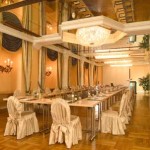
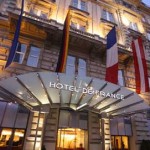
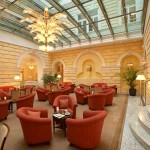
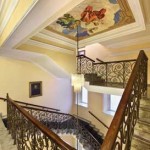

Vienna is a wonderful town with a rich history and a live full of cultural events.
For full information on Vienna as travel destination see the Vienna Destination Guide 2011: here
Features of Politicization in the EU
(Chair Emanuel Crudu)
- The Legitimacy of Public Information Campaigns about EU ReferendaThis paper investigates the challenges that national governments face in their public referendum campaigns about European integration. Over the last 50 years, more than 40 referendums have been organized about the EU (or EC), mainly dealing with treaty ratification, accession or specific issues such as the adoption of the Euro.Joost P. van den Akker , Zuyd University, Maastricht, The Netherlands
- Differentiated Integration as a Trend of EU Future DevelopmentThe papers starts form analyzing the historical trends of differentiation in the EU, in particular 1) from case by case approach toward predefined mechanisms like enhanced cooperation and permanent structural cooperation;Nikolay Kaveshnikov, Moscow State Institute of International Relations (MGIMO-University)
- Distant and Apolitical? A Comparative Study of the Domesticisation and Politicisation of the EU in Yorkshire (UK) and Galicia (Spain)This paper draws on Carl Schmitt’s conceptions of democracy and ‘the political’ to explain the seemingly apolitical and distant character of the European Union. Schmitt conceived democracy as a regime of identity between the government and the governed, and ‘the political’ as ‘friend versus enemy’ relationship.Francisco Seoane Perez, Universidad de Castilla-La Mancha, SpainJuliet Lodge, University of Leeds, UK
- European Parliamentary Elections: Candidates as Possible Politicisers?Elections to the European Parliament (EP) fall within the category of second-order elections. Because these types of elections do not lead to the formation of government there is less at stake and, consequently, voters behave differently when casting vote. Given their aggregate nature, the predictions of the second-order elections theory have mostly been tested using aggregate electoral data and election-related survey data.Jan Kovár, Metropolitan University Prague & Institute of International Relations Prague, Czech RepublicKamil Kovár, London School of Economics and Political Science, UK
Layers of Politicization in the EU: From Elections, Administration to Civil Society
(Chair Davide Bradanini)
- European Integration and Politicization of Europe Trough Ideational EntrepreneursAs demonstrated, for instance, during the campaign of the first EU constitutional referendum, external influences on national as on European institutions can be proved as effective and able to shape the EU. The paper aims to examine the production and circulation of ideas across networks of non-state organizations (Think Tanks, NGOs, Foundations) spanning the European Area and willing to influence EU institutions.Xavier Carpentier Tanguy , Centre Virtuel de la Connaissance sur l'Europe, Luxembourg
- European Civil Society: Theoretical Considerations and Empirical EvidenceThis paper aims to critically examine the question of whether there is anything particularly ‘European’ or ‘civil’ in European civil society, ECS herein. For the purpose of explaining the ‘European’ attribute, I develop a conception of a civil society that portrays it as a product of the dialectics between the European single market and the new experimental governance structure.Maja Lazo Savevska , Universite Libre de Bruxelles, Blegium and University of Warwick, UK
- Does the EU Enlargement Influence the National and European Identity? A Cross-National Analysis in Old and New Member StatesThe most recent enlargements of 2004 and 2007 meant the formal inclusion of approximately 90 million citizens into the European Union (EU). The inclusion of 12 new Member States moved the EU border eastward and diminished the heavy influence of some Old Member States (e.g.: the Polish and Czech influence on the Lisbon Treaty).Sergiu Gherghina , Department of Data Archive for Social Sciences, GESIS Leibniz Institute for Social Sciences, Koln, Germany
- European Parliament and Its Administration: What Do We Know and Where Do We Go Next?What would be a parliament without its administration? This is the question we look at in this paper. More specifically we deal with the second biggest assembly in Europe, i.e. European Parliament. The scope of the study is restricted to officials working in committee secretariats within the Secretariat and officials working in political groups of the European Parliament.Andreja Pegan , University of Luxembourg
Art as Cultural Diplomacy: Negotiating National Identity and EU unity
(Chair Cassandra Sciortino)
- Projecting `Britishness´ Abroad: The Case of the British CouncilThe paper investigates cultural diplomacy in the contemporary United Kingdom. It does so by examining the discourses on Britishness produced by the British Council, a body which operates at the arm’s length from the government whose activities are nonetheless incorporated in ‘public diplomacy’ pursued by the UK government.Atsuko Ichijo , Faculty of Arts and Social Sciences, Kingston University, UK
- ‘Let’s tell Poland to the world’. Activities of the Adam Mickiewicz Institute and Strategies of Polish Cultural Diplomacy in the Years 200-2010. Strategies. Facts. Critical NotesThe background of my speech are activities of the Adam Mickiewicz Institute, a governmental cultural institution whose aim is to promote Polish culture abroad and build the brand of ‘Poland’.Dorota Jurkiewicz-Eckert , Centre for Europe, University of Warsaw, Poland
- Culture and Identity as Tools for Forging EuropeanizationCultural diplomacy is understood as an exchange of ideas, information, values, traditions and beliefs and this can include fields such as art, sport, literature, music, science and economy.Martina Topic , Faculty of Political Science, University of Zagreb, Croatia
- The European Capitals of Culture Program as a Tool of Cultural Diplomacy and EngagementThe paper will use the framework of policy instruments/tools as a way of evaluating the ECOC Program as an exercise in cultural diplomacy and engagement.Margaret Wyszomirski , Arts Policy & Administration Program, The Ohio State University, USA
Art as Cultural Diplomacy: Power and the Agency of Images
(Chair Cassandra Sciortino)
- The Image of Salome in Art in the 19th and 20th Centuries as a Symbol of Social IdeologyThe image of Salome has been central for works of art for centuries. At first it was an image that was annexed to St. John the Baptist's Passion and then in the Renaissance and especially in the 19th century that image took life of its own.Rosina Neginsky , University of Illinois, Springfield, USA
- Napoleon’s Europe through the Lens of Art History – a survey of temporary exhibitions (1990-2011)As an essential figure of European history, Napoleon has been the subject in the last two decades of a wave of major historical exhibits organized by national museums across Europe in the context of the bi-centennial celebrations/commemorations of the major battles of the Napoleonic wars.Felicity Bodenstein , Université de Paris IV-Sorbonne
- Black and White: Imaginations of European Identity in Eurosceptic and Eurooptimistic Political Cartoons in UK and SlovakiaAfter twenty years of research, discussions about European identity almost belong to the folklore of European Studies, yet the concept still seems to pose more questions rather than give definitive answers. Discourse analysis has become the tool of choice for many scholars of identity, who paid plenty of attention to the official EU documentation, public speeches of its representatives, newspaper articles.Daniela Chalaniova , Metropolitan University Prague, Department of International Relations and European Studies, Czech Republic
The Democratic Deficit Issue in the EU
(Chair Joost P. van den Akker)
- Legislative Transparency and Censorship in the Council of Ministers of the European UnionThe Council of Ministers as a legislative body advocates transparency in the legislative process, yet continues to censor certain documents pertaining to the negotiation process, even after these negotiations have been completed.James Cross , ETH Zurich, Switzerland
- Fiscal Deficit or Democratic Deficit? How Finance has Disenfranchised the European ElectoratesThis paper explores the consequences on the so-called ‘democratic deficit’ of the recent developments within the Eurozone. It argues that the April 2011 Europlus agreement – which consolidates surveillance mechanisms on fiscal and economic policies of member states – together with the wider practices adopted to deal with ‘fiscal irresponsibility’Davide Bradanini, IMT Advanced Studies Institute
- How Enlightened is the European Despotism? The Persistence of the Democratic Deficit in the European UnionThere is a wide variety of denominators for the EU in addressing its political structures of decision making and its inherent democratic deficit features, and yet there is still room for conceptual innovation. The democratic problem or the democratic deficit issue was and continues to be one of the main challenges facing the European Union in any terms or from any position is understood or described.Emanuel Crudu, IMT Advanced Studies InstituteMaria Eremenko, National Research University - Higher School of Economics, Laboratory of Political Research, Moscow, Russia
The Future of EU Enlargement
(Chair Nikolay Kaveshnikov)
- Delayed EU Enlargement in the Western BalkansAfter one century of delay in the European reformation of the Balkans: 1914-2011; and a decade of status quo of enlargement: 2000-2010; Western Balkans is facing a new historic challenge: will the next decade: 2010-2020 be another decade of unrealistic expectations to be part of the EU?Blerim Reka , South East European University, Pro - Rector for Research, Professor of International Law and EU Law, Tetovo, Republic of Macedonia
- The European Union’s Capacity to Absorb: What Are the Legal Implications of Future Rounds of Enlargement and How to Deal With Them?The last decade witnessed the unprecedented rounds of the European Union (EU) enlargement with the accession of twelve new Member States in 2004 and 2007. Nevertheless, at no time in the past did the EU appear to be as heterogeneous as it does at present with the divisions along the lines of ‘new’ and ‘old’ Member States.Narine Ghazaryan , School of Law, Brunel University, London, UK
- EU Enlargement and the Western Balkans? Policy Changes and Policy Options from the Perspective of Candidate CountriesThis paper discusses how different is the position of the Western Balkan countries in the enlargement process and what are the policy options in the new circumstances from the position of the policy taker, a potential EU member state.Sanela Lukic , Faculty of Political Science, Belgrade University, Serbia and King’s College London, London, UK
- Which Strategy for the Western Balkans? The EU’s Enlargement Strategy between Conditional Coronation and Flexible ParticipationThe proposed paper examines the evolution of the European Union’s enlargement strategy. Academic researchers have argued that the EU has primarily managed its enlargement in accordance with the classic Community method.Oliver Schwarz , University of Duisburg-Essen, Faculty of Social Sciences, Institute for Political Science, Germany
- The Future of EU Enlargement: Challenge call- Western Balkans countries and TurkeyEU enlargement will depend on many factors and challenges that will determine not only the pace of this process but also will carry alongside the settlement of many open problems in various forms, between Western Balkan countries and member states of EU.Ylber Sela, South East European UniversityBekim Maksuti , South East European University, Tetovo, Republic Of Macedonia
Art as Cultural Diplomacy: Contemporary Art and the Challenge of Representing Europe Through Multiple Identities
(Chair Cassandra Sciortino)
- Collaboration, Cultural Diplomacy and Conflicting Representations in Contemporary Art BiennialsSince the first Venice Biennale in 1895 to the contemporary art system, biennales have increasingly provided a venue to reflect on the politics of representation of international art and, more recently, on the challenges brought about by globalization.Federica Martini Schellenberg , Musée Cantonal des Beaux-Arts, Lausanne, Switzerland
- Hybrid Modes of Collaborations in Contemporary Art Practices: Challenging the Politics of Belonging in the Post-1989 CommunityThis paper problematizes the notion of community enacted at the EU level, through a contextual analysis of two collaborative contemporary artworks, Re:route (2002, in Turin, Italy) by the Hungarian artist Miklos Erhardt and Scottish artist Dominic Hislop and Together/Impreuna (2007, in London, UK) by Romanian artist Matei Bejenaru.Izabel Galliera , Department of History of Art and Architecture, University of Pittsburgh, USA
- Giving Birth to IdentityHaving joined the European Union, both Hungary and Romania found themselves facing new challenges. The borders, that seemed impossible to cross between the two neighboring countries, suddenly opened up. This new freedom inspired a discourse through which, mostly because of the touchy issue of Transylvania that created tension between Hungary and Romania in the past century, ideas of identity and belonging are being raised not as a national, rather as a regional question.Delia Vekony , Department of Arts Management of the International Business School, Budapest, Hungary
- Art Exhibitions as Instruments for Cultural Diplomacy Between Russia and GermanyThe proposed paper intends to analyse West German and Soviet/Russian cultural relations based on art exhibitions. The aim is to show ways in which art is used as the means of diplomacy to pursue political, social and economic interests.Elena Korowin , Karlsruhe University for Arts and Design, Germany
The EU as a Political System
(Chair Xavier Carpentier Tanguy)
- Social Democratic Parties and Political Competition in the EU: Evidence of a Tri-dimensional SpaceThis paper’s aim is to describe the structure of political competition in the EU as it is constructed by national parties. The analysis shows that the political competition in the EU is tri-dimensional. Social democratic parties in Great Britain, Germany and Italy are the case in point.Valeria Camia , Institute of Political Science, University of St Gallen, Switzerland
- The EU’s Diplomacy After The Lisbon Treaty: A Case Of 2010 Nobel Peace PrizeThe “Power Audit of EU-China Relations”, a report by John Fox and François Godement published in 2009, presented a new approach in analyzing the EU Member States’ positions towards China and led to detailed recommendations for the whole EU’s policy in this respect. At that point, the Lisbon Treaty, then coming to the ratification, was expected to be the future agent of such changes in the EU’s policy.Roza Smolinska, Independent Researcher , Brugge, Belgium
- The Death and the Resurrection of the Political in EuropeOur project will follow the almost dialectical way, in which the relation between the economical and the political dimension of the European Union project has evolved during the last decades.Dana Domsodi, Babes-Bolyai University
- Turkey-EU Relations and The Role of Turkey for EUThe political life emerging from the end period of the Ottoman Empire has been essential for the establishment of the Turkey. During this period the democratization process has gained an important role under the impact of Turkey’s potential membership in the EU.Metin Aksoy , Selcuk University, Faculty of Economics and Administrative Sciences, Konya, Turkey











